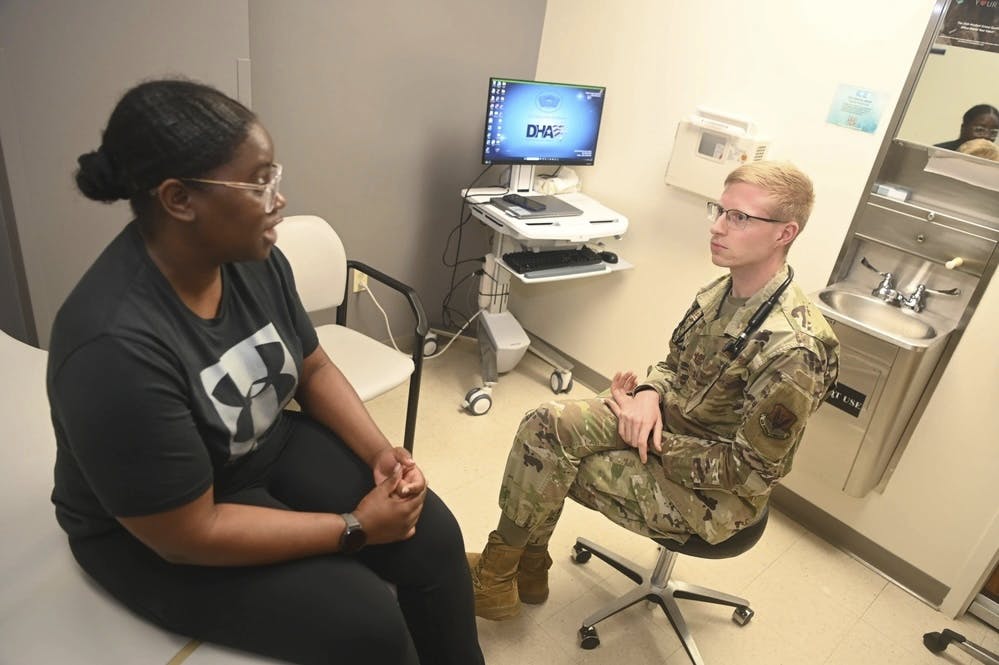NIH Launches Competition to Accelerate COVID-19 Testing
The $1B+ initiative seeks solutions that enable accessibility, scalability, mobility and the ability to share data.

The National Institutes of Health is racing to support innovative, accessible and scalable COVID-19 tests through a new $1.5 billion competitive program that will support top testing solutions proposed and aims to produce tens of millions of tests by August.
The program, called Rapid Acceleration of Diagnostics (RADx), will operate similarly to the popular TV show “Shark Tank,” explained NIH Director Francis Collins during a Senate committee hearing Thursday. NIH will break it down into a three-part process that will conclude with the mass production of top submitted testing solutions by the late summer of early fall.
The first step will involve a rapid selection process of proposals submitted to the RADx solicitation. Top solutions, Collins added, should be able to test and provide results at the point of care. They should also leverage mobile devices and data transmission capabilities. Current tests still need to send samples to a lab and often take hours or days to process, so Collins stressed that accessibility, accuracy and flexibility are key.
“We need tests that don’t require hours or days to determine results,” Collins said during the hearing. “The new types of tests need to be sensitive enough to flag asymptomatic individuals who may have just become infected and don’t even know it yet. They must be reliable and have a user-friendly design. They must utilize various types of samples, including saliva, and ideally they should be able to integrate with mobile devices to process and show results and transmit data seamlessly. And above all, they need to be accessible.”
An “expert review board” that covers scientific, clinical, regulatory and business domains will rapidly evaluate proposals to narrow down solutions that meet NIH’s criteria. From there, chosen solutions will enter the next stage, where NIH will start awarding funding to the respective organizations and companies. NIH will also provide technical and clinical expert support in this stage to help address any weaknesses identified in the initial evaluation.
The next phase will bring solutions through clinical testing, regulatory approval and the process of scaling up, Collins continued. If certain solutions are already well developed, Collins said those technologies can jump ahead to this stage after passing the rapid selection process. Once this step is completed, NIH will support finalists in the manufacturing and production of tests.
NIH will allow submissions for RADx on a rolling basis, and in the first week that the agency began accepting proposals, 1,087 applications had been initiated, 79 of which were completed.
“In 27 years at NIH, I have honestly never seen anything move this quickly, the expert review team already in place has identified 20 of these completed applications and are ready to move into that first phase of intense scrutiny, and the game is on,” Collins said. “It’s going to be a wild ride.”
In addition to the general RADx program, NIH will also launch a RADx project to support underrepresented populations called RADx-UP.
“This effort … will include the development of a centers program that will allow demonstration projects to be put in place across the country in places where COVID-19 has hit hardest, and where testing has thus far been inaccessible,” Collins said. “We’ll also include a program focused on the ethical, legal and social issued associated with COVID-19 diagnostic testing and ways to try to avoid the inequities associated with unequal access.”
The Biomedical Advanced Research and Development Authority is also supporting RADx with a COVID-19 initiative of its own accelerate COVID-19 vaccine and therapeutic development alongside diagnostic testing.
The agency received 210 submissions under its respective broad agency announcement and 310 under its streamlined solicitation, said BARDA Acting Director Gary Disbrow. Now this initiative will integrate with RADx and an NIH-accelerated vaccine and therapy solution program called ACTIV to provide further funding and support.
“BARDA will provide subject matter expertise as applications are reviewed, potential candidates are identified and as teams are assembled to shepherd development,” Disbrow said. “NIH’s initiative and BARDA’s efforts are complementary, and together we will make the RADx program a success.”
This is a carousel with manually rotating slides. Use Next and Previous buttons to navigate or jump to a slide with the slide dots
-

Trump Orders Spark Government-Wide Acquisition Overhaul
As Trump pushes for a faster, simpler procurement system, agencies are leveraging AI and adapting strategies to meet new requirements.
5m read -

IRS Makes Direct File Code Public as Lawmakers Debate Program’s Fate
The agency sees the Direct File source code as beneficial to government digital services despite what happens with it in proposed budgets.
5m read -

Inside Oak Ridge National Lab’s Pioneer Approach to AI
Energy Department’s Oak Ridge National Lab transforms AI vulnerabilities into strategic opportunities for national defense.
22m listen -

A Look at Federal Zero Trust Transformation
Recent developments from CISA and DOD show how government is advancing zero trust quickly.
20m read -

Modernization Strategies to Enable Energy Innovation
Lawrence Berkeley National Lab and Maximus experts explore the modernization strategies driving digital transformation and operational resilience within the energy sector.
33m watch -

DOI Must Modernize Energy to Win AI Race, Secretary Says
Doug Burgum links AI innovation to energy reform as DOI advances digital infrastructure and wildfire response under Trump’s tech agenda.
2m read -

Army Combines Commands to Propel Innovation Under New Transformation Plan
Lt. Gen. Miles Brown outlines a new transformation strategy after the AFC–TRADOC merger to integrate new technologies within 18 months.
4m read -

NIST to Release New AI Cybersecurity Guidance as Federal Use Expands
NIST plans to release AI cybersecurity guidance within the year to support safe adoption as federal agencies expand use cases.
4m read -

Federal Zero Trust Forum
The Federal Zero Trust Forum brings together key technology leaders from across government to explore practical strategies and share lessons for advancing zero trust architecture.
Ritz Pentagon City | 1250 S Hayes St, Arlington, VA 22202 -

CIA Adds Fourth Pillar to AI Strategy, CAIO Says
Lakshmi Raman says the new pillar marks a strategic shift toward embedding AI more deeply into the CIA’s day-to-day mission execution.
3m read -

FEHRM CTO Targets Two-Year Cloud Migration for Federal EHR
Lance Scott touts new EHR tech advancements, including cloud migration, expanded data exchange and AI integration to improve care delivery.
4m read -

AI Enables Coast Guard’s Workforce to Transform Operations
The Coast Guard’s Deputy CIO Brian Campo delves into the ways AI is pushing the service to rethink its core services, workforce and operations.
14m watch
















